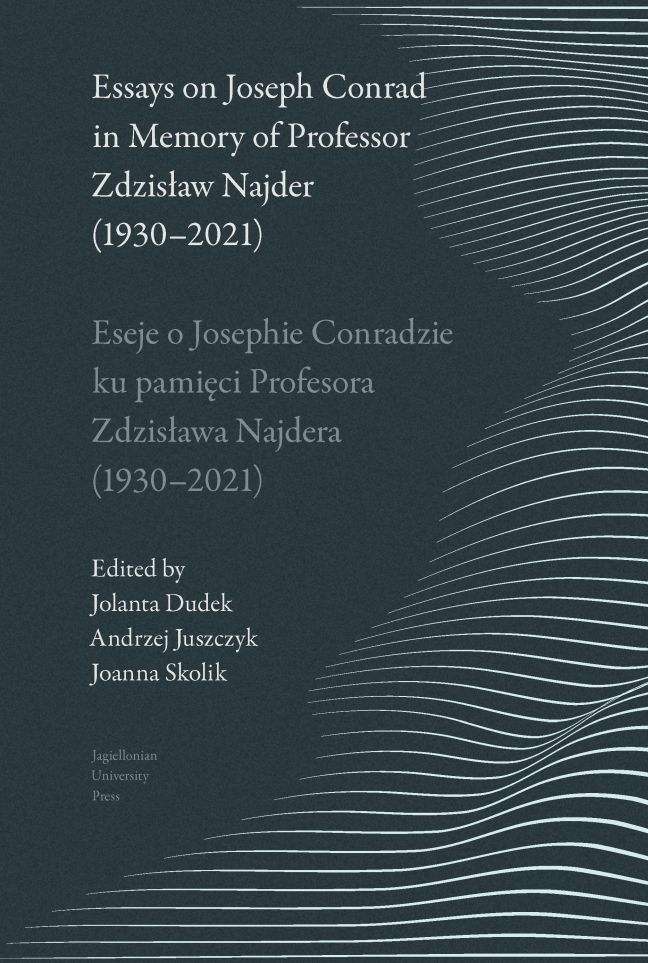Book contents
- Frontmatter
- Contents
- Part I
- Part II
- Bibliografia publikacji i audycji medialnych Zdzisława Najdera o Josephie Conradzie / A Bibliography of Zdzisław Najder's Publications and Media Programmes on Joseph Conrad
- Notes on Contributors / Noty o autorach
- Author Index / Indeks nazwisk
- Miscellaneous Endmatter
The Deathbed Repentance in Tolstoy's “The Death of Ivan Ilych” and Conrad's Heart of Darkness
Published online by Cambridge University Press: 01 March 2024
- Frontmatter
- Contents
- Part I
- Part II
- Bibliografia publikacji i audycji medialnych Zdzisława Najdera o Josephie Conradzie / A Bibliography of Zdzisław Najder's Publications and Media Programmes on Joseph Conrad
- Notes on Contributors / Noty o autorach
- Author Index / Indeks nazwisk
- Miscellaneous Endmatter
Summary
Joseph Conrad's relation to Lev Tolstoy was complex. Although he considered “Turgenev (and perhaps Tolstoy) the only two worthy” of Constance Garnett's talent as a translator, Tolstoy's works were judged severely by the English writer. He could not see any merit in Tolstoy's “The Death of Ivan Ilych” and The Kreutzer Sonata. In a letter to Galsworthy, Conrad wrote of “the gratuitous atrocity” of the deathbed repentance of Ivan Ilych and “the monstrous stupidity of such a thing as the Kreutzer Sonata.”
The idea of “The Death of Ivan Ilych” (1886)—“the incomparably brilliant” and one of Tolstoy's most powerful short stories—was suggested to Tolstoy by the death of Ivan Ilych Mechnikov in May 1881, who was a public prosecutor of the Tula District Court. “The Death of Ivan Ilych,” like The Kreutzer Sonata, depicts the experience of one individual. Both stories are semi-autobiographical dramatizations of lives lived largely on false premises.
Apparent authorial absence, an artful documentary objectivity, naturalistic dialogue, and well-paced narrative drive turn Tolstoy's stories into the embodiment of his definition of the purpose of art, which is to be found in chapter five of What is Art? (1898). There the Russian writer claims that art is a human activity in which one man transmits to others the feelings he has experienced so that others are infected by them. Inevitably, an air of emotional sterility suggests withdrawal of sympathy, a literal defamiliarizing of the subject matter, and, to that extent, a degree of alienation.
“The Death of Ivan Ilych” opens with the aftermath of Ivan Ilych's death when the meaning of his life is reduced to such mundane issues as the likelihood of promotion among his surviving colleagues, their unadmitted self-satisfaction at still being alive, and his widow's concern for her future in a financial sense. Ivan's whole story is designed to reveal the self-deluding, self-aggrandizing pretentiousness of his life, which “had been most simple and most ordinary and therefore most terrible.” Ivan Ilych “was le phenix de la famille … an intelligent, polished, lively and agreeable man.” He studied “at the School of Law,” and “finished the course well.”
- Type
- Chapter
- Information
- Publisher: Jagiellonian University PressPrint publication year: 2023



